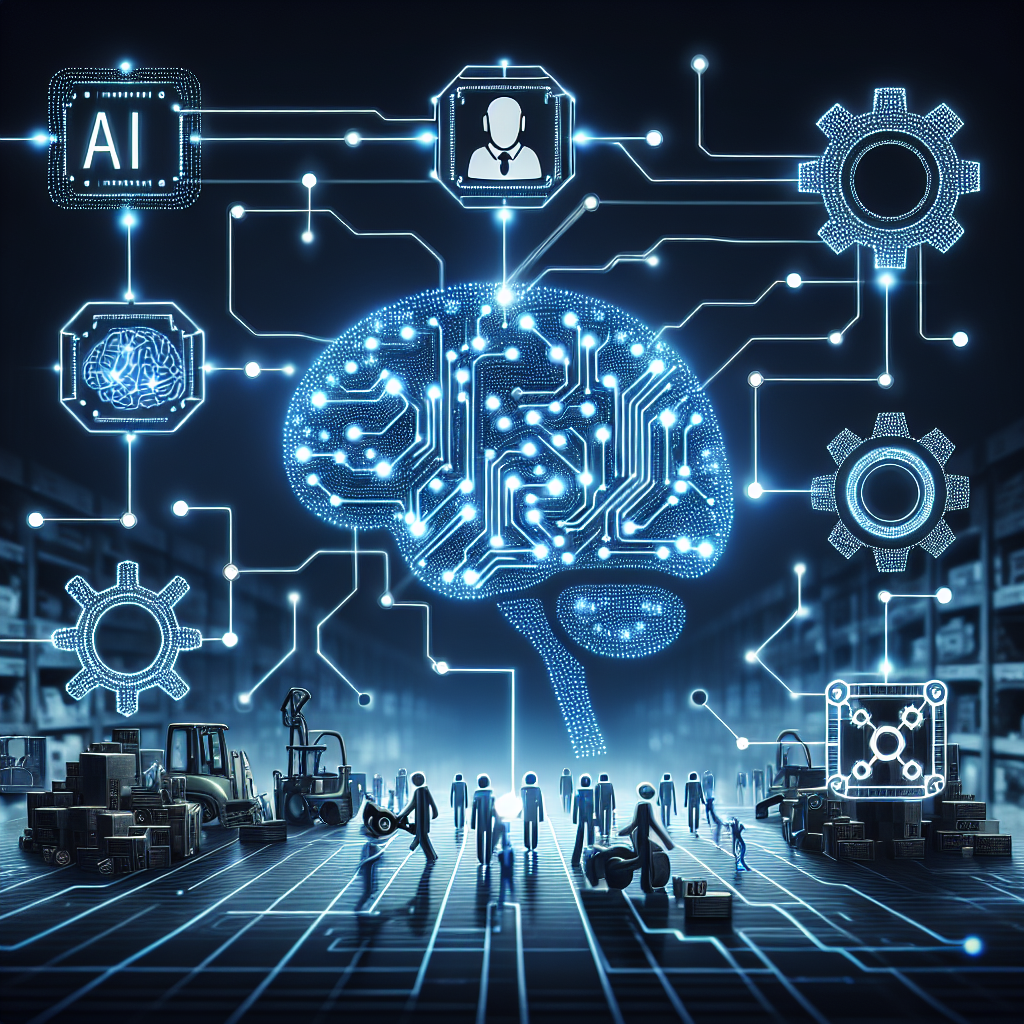In recent years, Artificial Intelligence (AI) and Machine Learning have become integral components of supply chain management. These technologies have transformed the way businesses operate, providing unprecedented levels of efficiency, accuracy, and visibility within the supply chain. From demand forecasting to inventory management and logistics optimization, AI and Machine Learning are revolutionizing the way companies manage their supply chains.
The Future of Supply Chain Management with AI and Machine Learning
AI and Machine Learning technologies have the potential to revolutionize supply chain management by enabling companies to make more informed decisions, automate processes, and improve overall efficiency. Here are some key ways in which these technologies are shaping the future of supply chain management:
1. Demand Forecasting: One of the key challenges in supply chain management is accurately forecasting demand. AI and Machine Learning algorithms can analyze historical data, market trends, weather patterns, and other variables to predict future demand more accurately. This enables companies to optimize inventory levels, reduce stockouts, and improve customer satisfaction.
2. Inventory Management: AI and Machine Learning algorithms can also help companies optimize their inventory levels by analyzing factors such as lead times, demand variability, and supplier performance. By automatically adjusting inventory levels based on real-time data, companies can reduce carrying costs, minimize stockouts, and improve overall supply chain efficiency.
3. Logistics Optimization: AI and Machine Learning can also optimize logistics operations by analyzing factors such as transportation costs, delivery times, and route efficiency. By using predictive analytics to identify the most cost-effective shipping methods and routes, companies can reduce transportation costs, improve delivery times, and enhance overall supply chain performance.
4. Supplier Relationship Management: AI and Machine Learning can also improve supplier relationship management by analyzing factors such as supplier performance, lead times, and quality control. By identifying high-performing suppliers and proactively managing supplier relationships, companies can reduce risk, improve product quality, and enhance supply chain resilience.
5. Real-time Visibility: AI and Machine Learning technologies can provide real-time visibility into the entire supply chain, enabling companies to track inventory levels, monitor shipments, and identify potential bottlenecks in real-time. This level of visibility enables companies to proactively address issues, optimize processes, and improve overall supply chain performance.
6. Risk Management: AI and Machine Learning can also help companies manage supply chain risks by analyzing factors such as geopolitical events, natural disasters, and supplier disruptions. By using predictive analytics to identify potential risks and develop risk mitigation strategies, companies can improve supply chain resilience and reduce the impact of unforeseen events.
7. Sustainability: AI and Machine Learning technologies can also help companies improve the sustainability of their supply chains by analyzing factors such as carbon emissions, energy consumption, and waste generation. By optimizing transportation routes, reducing packaging waste, and sourcing materials sustainably, companies can reduce their environmental impact and enhance their corporate social responsibility.
FAQs:
1. What is the difference between AI and Machine Learning in supply chain management?
AI refers to the broader concept of machines being able to carry out tasks in a way that we would consider “smart.” Machine Learning is a subset of AI that involves the development of algorithms that can learn from and make predictions or decisions based on data.
2. How can AI and Machine Learning improve demand forecasting in supply chain management?
AI and Machine Learning algorithms can analyze historical data, market trends, weather patterns, and other variables to predict future demand more accurately. This enables companies to optimize inventory levels, reduce stockouts, and improve customer satisfaction.
3. What are the key benefits of using AI and Machine Learning in supply chain management?
Some key benefits of using AI and Machine Learning in supply chain management include improved demand forecasting, optimized inventory management, enhanced logistics optimization, improved supplier relationship management, real-time visibility, risk management, and sustainability.
4. How can companies integrate AI and Machine Learning into their existing supply chain management systems?
Companies can integrate AI and Machine Learning into their existing supply chain management systems by partnering with technology providers, investing in AI and Machine Learning talent, and implementing pilot projects to test the technology in real-world scenarios.
In conclusion, AI and Machine Learning are revolutionizing the future of supply chain management by enabling companies to make more informed decisions, automate processes, and improve overall efficiency. By leveraging these technologies, companies can optimize demand forecasting, inventory management, logistics operations, supplier relationship management, real-time visibility, risk management, and sustainability within their supply chains. As AI and Machine Learning continue to evolve, we can expect to see even greater advancements in supply chain management, leading to increased efficiency, cost savings, and competitive advantage for businesses across industries.

